University of Washington
PUBLIC INTEREST DESIGN TRAINING EVALUATION:
June 15th and 16th, 2012 – University of Washington, Seattle Campus, Gould Hall, Room 110
Presented by Design Corps, AIA Seattle, and the University of Washington.
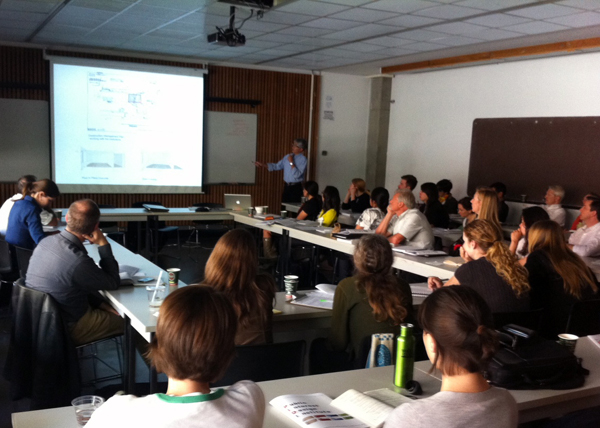
Institute Recap:
How well did we meet your expectations and provide value to you?
Please evaluate how successfully the Public Interest Design Training met your expectations for each of the following.
“5” is highly successfully?“3” is successfully?“1” is unsuccessfully
| Average Score | Learning Objective |
| 4.5—————- | Understanding public interest design and how is it re-shaping the design professions. |
| 4.0—————- | Moving beyond LEED to measure the social, economic, and environmental impact on communities. |
| 4.0—————- | Maximizing a project’s positive impact on a community. |
| 4.3—————- | Using a step-by-step process of working with a community as a design partner. |
| 3.9—————- | Leveraging other partners and assets to address project challenges. |
| 3.4—————- | Identifying new fee sources |
| 3.5—————- | Finding new clients and public interest design projects. |
Comments from attendees Public Interest Design Institute -Seattle
Why did you attend this PID training?
Meet a “community of practice” (i.e. others with shared interests) and find an alternative practice to my regular Architecture practice. —Anon.
I have been following this for a while and hoped to get a sense of the “here and now” of design for the public interest. –David Smolker.
I work on a number of public projects that should be for the benefit of the larger community. Want to find ways of incorporating more community ideas into the design process. — Ida Ottesen
What was the most valuable lesson learned?
Reinforcement on seeking things out for myself –grants, projects, partners, etc. Also, I didn’t know ho much about how many grants exist in the world, that’s helpful. –Anon.
That you have to look far beyond the traditional paths of architectural practice, and often make your own. –Anon.
Regaining the sense of possibility (I’ve been in the profession 30+ years). –Anon.
How will this training benefit the work you do?
It enables new perspective and methodologies to achieve success for the greater good. –Lisa Herriott
Yes- finding community partners. — Anon.
Inspiration! We will be applying the SEED principals to our projects in order to help guide them and give ourselves and our clients more clarity and better goals.— Stephanie Ingram
Will the training help you accomplish any new goals?
Yes, I hope to utilize the SEED process to start a thesis research project for public health. –Lisa Herriott
Yes. I am now connected to a network of professionals and best practices to help inform my future work. SEED is an excellent framework for the PID process- enough structure to encourage success and enough flexibility to enable creativity. –Michele Hill
Suggestions for Improvement?
More interactive sessions. Case studies are great, but I would like to “try” the SEED methods…Breakout sessions, work in groups, problem-solving cases would be nice.–David Smolker
Teach how to approach grant funders. More on what goes into a SEED application. –Tom Steidl
Instructors
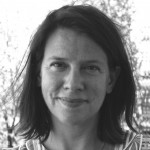
Jamie Blosser founded the Sustainable Native Communities Collaborative (SNCC) to research and develop best practices promoting cultural and environmental sustainabilityin tribal and rural communities. The SNCC, an initiative of Enterprise Community Partners, is a research and technical assistance arm to her architectural practice as an Associate at Atkin Olshin Schade Architects, where she oversees the firm’s housing, tribal and sustainable development projects. Jamie’s work is rooted in community design. As an Enterprise Rose Architectural Fellow from 2000-2003, her project received the Harvard University’s Honoring Nations award and EPA Smart Growth Award for Small Communities. The SNCC received a grant from the National Endowment for the Arts to document five tribal sustainability projects in the Southwest, including a green design guideline for the Navajo Housing Authority. Jamie is an on the Advisory Group for the AIA Residential Knowledge Community and received her Master of Architecture from the University of Pennsylvania. Her work has been selected for inclusion in Design Re-Imagined: New Architecture on Indigenous Land, a book on contemporary Native American architecture.
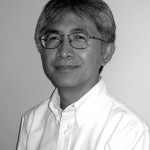
Lawrence Cheng joined Bruner/Cott in 1999 after managing his own firm for several years. His expertise is the design of multi-family housing and mixed use facilities. His contributions include project design, detailing, and supervision of project team activities.Mr. Cheng’s work includes the Chinatown Community Education Center in Boston and multi-family housing developments such as The Penmark Condominiums at Harrison Commons and the Channel Center luxury residential housing. He is a former Loeb Fellow in Advanced Environmental Studies at the Harvard Graduate School of Design, and holds Master of Architecture and Bachelor of Science degrees from MIT.
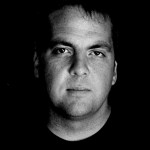
John Folan is the T. David Fitz-Gibbon Professor of Architecture, Founder and Director of the Urban Design Build Studio (UDBS), track Chair of the Masters of Urban Design (MUD) Program, and member of the Remaking Cities Institute (RCI) at Carnegie Mellon University. Since joining the faculty at Carnegie Mellon University in the fall of 2009, John and the UDBS have been working with challenged urban communities in Allegheny County on the development and implementation of catalytic projects through participatory design processes. The work has been recognized with the 2010 ACSA Collaborative Practice Award and the 2011 AIA/ACSA Housing Design Education Award. The work in Pittsburgh represents an extension of efforts in university affiliated community based design and construction, initiated while John was tenured faculty member at the University of Arizona. In Tucson, Arizona John co-founded, co-directed, and served as an executive board member of the Drachman Design Build Coalition (DDBC); a university affiliated, non-profit, 501(c)3 corporation dedicated to the design and construction of environmentally specific, energy efficient, affordable housing prototypes. Projects with the DDBC implemented in Tucson’s Urban Empowerment Zone have been recognized with three consecutive AIA Arizona Honor Awards for Residence of The Year and the 2011 ACSA Collaborative Practice Award. Urban strategies employed in the implementation of the DDBC work influenced the collaborative development of the Drachman Institute’s legislative proposal for regionally specific sustainability guidelines. The work was recognized with first place award in the 2008 National Urban Policy Initiative Competition (NUPIC).

Milenko Matanovic is a thinker, teacher and an artist preparing communities for the future. In 1986, Milenko founded Pomegranate Center to explore how to use creativity in ways to create positive change. He believes that working with communities is the most efficient, foundational way to improve society. He teaches that when it comes to community, together we always know more. He worked with hundreds of communities across the country and abroad, built over 40 gathering places, spoke at universities and community gatherings and conferences, and trained community leaders in the Pomegranate Center model of community building. He has been honored with many awards.
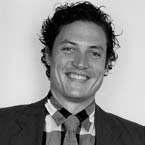
Michael Murphy is the Co-Founder and Executive Director of MASS Design Group, which is an design firm geared towards improving health outcomes in resource-limited settings. In addition to leading the design and construction of the Butaro District Hospital in Rwanda, which opened in January of 2011, Michael’s firm MASS has been the recipient of the 2010 Design Futures Council Emerging Leaders Scholarship, chosen as one of Fast Company Magazine’s “Master of Design” and awarded as a Metropolis Magazine 2011 “Game Changer”. MASS was recently selected as a finalist for MoMA PS1’s 2011 Young Architects Program and was honored alongside IDEO’s CEO Tim Brown for its contribution to the field of design.MASS Design Group currently has offices in Boston, Massachusetts, Kigali, Rwanda, and Port au Prince Haiti. In July MASS opened the Girubuntu Primary School in Kigali, and this fall it is breaking ground on several projects in Haiti, including the new GHESKIO Tuberculosis Facility constructed out of locally fabricated materials.
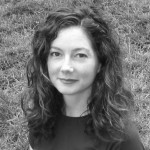
Rachel Minnery is an architect, LEED accredited professional and community activist with Environmental Works, a non-profit community design center. Her passion is creating, enhancing and sustaining vibrant communities for all. Rachel has designed and managed housing, education and healthcare projects in the public and private sectors. Rachel supports communities in crisis, providing disaster response and recovery services while preparing other architects to do the same. As chair of the national American Institute of Architect’s Disaster Assistance Committee and cofounder of Architects Without Borders Seattle, she advocates for and organizes architects to contribute volunteer design services to communities in great need. She has led groups of volunteer architects to disaster-stricken places close to home and as far away as Mississippi and Haiti, responding to floods, hurricanes and earthquakes. In 2006, AIA Seattle honored her with the Community Service Award. Rachel is the recipient of the Graduate of the Last Decade (GOLD) award from Ball State University and College of Architecture’s Award of Outstanding Achievement.
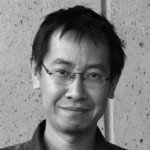
Jeff Hou has taught in the department of Landscape Architecture at the University of Washington since 2001 where he served as the Graduate Program Coordinator, prior to becoming the Department Chair. Prof. Hou’s research, teaching, and practice focus on engaging marginalized communities and citizens through community design, design activism, and cross-cultural learning. In a career that spans across the Pacific, he has worked with indigenous tribes, farmers, and fishers in Taiwan, neighborhood residents in Japan, villagers in China, and inner-city immigrant youths and elders in North American cities, in projects ranging from conservation of wildlife habitats to rebuilding of indigenous villages and design of urban open space and streetscapes. He is the editor of Insurgent Public Space: Guerrilla Urbanism and the Remaking of Contemporary Cities (2010) and a co-author of Greening Cities, Growing Communities: Learning from Urban Community Gardens in Seattle (with Julie Johnson and Laura Lawson) (2009). He is a contributor to Expanding Architecture: Design as Activism (2008) and Companion to Urban Design (2011). His research on innovative practices of community participation and design education has also been published in Journal of Planning Education and Research, Landscape Journal, Journal of Architectural Education, and Open House International. Prof. Hou is a recipient of 2011 CELA Award for Excellence in Service-learning Education and the 2010 Great Places Book Award, as well as grants from the Landscape Architecture Foundation and Worldwide Universities Network. He has served on the board of the Association for Community Design, and currently co-chairs the advisory committee for IDEA Space, a community design and resource center in Seattle’s International District. As a coordinator for the Pacific Rim Community Design Network, he helped organize the first Conference on Democratic Design in the Pacific Rim in Berkeley in 1998. Prof. Hou has a multidisciplinary background in architecture, landscape architecture, planning, and public art. He received his PhD in Environmental Planning and Master of Architecture from University of California, Berkeley. He also has a Master of Landscape Architecture from University of Pennsylvania and Bachelor of Architecture from the Cooper Union.
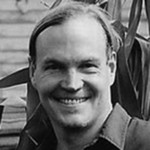
Bryan Bell is the academic Leader of each session, the founder of Design Corps, the founder of the Public Interest Design Institute, and a co-founder of SEED. Bell has supervised the Structures for Inclusion lecture series for ten years which presents best practices in community-based design. He has published two collections of essays on the topic. Bell has lectured and taught at numerous schools including the Rural Studio with Samuel Mockbee. He has received an AIA National Honor Award in Collaborative Practice. His work has been exhibited in the Venice Biennale and the Cooper Hewitt Museum Triennial. He was a Harvard Loeb Fellow in 2010-11 and a co-recipient of the 2011 AIA Latrobe Prize which is focused on public interest design. Other speakers will be national leaders of this emerging field.
Schedule
FRIDAY, JUNE 15
8:00-9:00 Registration + Coffee
9:00- 9:45 Introduction to Public Interest Design + Learning Objectives
9:45-10:00 Audience Introductions
10:00-10:15 SEED + Healthcare, Steve Dombrowski
10:15-10:45 Networking Break (coffee + snacks)
10:45-12:00 CASE 1: Butaro Hospital, MASS Design, Michael Murphy
12:00-1:15 Lunch (meet together or on your own)
1:15-2:30 CASE 2: Chinatown Community Education Center, Bruner/Cott Architects and Planners,
Lawrence Cheng
2:30-3:00 Networking Break (coffee + snacks)
3:00-3:45 Environmental Works, Rachel Minnery
3:45-4:30 Pomegranate Center, Milenko Matanovic
4:30-5:00 Discussion
SATURDAY, JUNE 16
9:00-10:00 The SEED communication, evaluation, and certification process, Bryan Bell
10:00-10:30 Networking Break (coffee + snacks)
10:30-12:00 CASE 3: Owe’neh Bupingeh Preservation Plan Project, Atkin Olshin Schade Architects, Jamie Blosser
12:00-1:15 Lunch (meet together or on your own)
1:15-2:30 CASE 4: Building Partnership and Capacity in Seattle’s International District, University of Washington, Jeff Hou
2:30-3:00 Networking Break (coffee + snacks)
3:00-3:45 CASE 5: Manufactured Migrant Housing, Design Corps, Bryan Bell
3:45-5:00 Review and SEED Exam
CEU Credits: 11.5
Price:
Standard: $450
AIA and ASLA Members: $350
Student: $250
* Price does not include food or lodging.
* You must complete Paypal payment after registration in order to reserve your seat. Contact us within 24 hours of registration and payment if you need a refund for any reason.
* We reserve the right to cancel the institute up until 4 weeks before the event date if we have not met the minimum registrations required to cover the costs of bringing in the instructors. Should this occur, we will notify you immediately and you will be refunded in full. The Seattle Institute has been Confirmed



